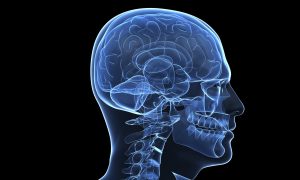 An international team of researchers has found that a “computerized rocket game” was able to help patients with schizophrenia suppress one of the most damaging symptoms of the condition. The video game appeared to help in controlling the part of the brain linked to verbal hallucinations, a common symptom of schizophrenia.
An international team of researchers has found that a “computerized rocket game” was able to help patients with schizophrenia suppress one of the most damaging symptoms of the condition. The video game appeared to help in controlling the part of the brain linked to verbal hallucinations, a common symptom of schizophrenia.
Schizophrenia is a complex, debilitating mental health condition characterized by the hampering of a person’s ability to distinguish their thoughts and feelings from the reality around them. Roughly 70 percent of patients suffering from schizophrenia experience verbal hallucinations. Traditional antipsychotic drugs have little or no effect for 30 percent of those sufferers.
The cause of the hallucinations is not fully understood. However, the superior temporal gyrus (STG), a part of the brain known to be sensitive to speech and human voices, has been observed to be hyperactive in patients suffering from auditory hallucinations. The new pilot study aimed to determine if patients suffering from verbal hallucinations could train their brain to regulate the level of activity in their STGs.
The researchers used MRI scanning to observe the STG brain regions in real time during four sessions spread over a two-week period. By the fourth and final MRI session, all of the patients were able to successfully lower their STG activity using the techniques that they had devised themselves, even without the visual indicator of the rocket landing. They reported that their voices became less external and more internal, making them less stressful and easier to cope with.
In time, the patients did learn to use the technique in their daily lives to reduce the power of their hallucinations. Dr Natasza Orlov, from King’s College London, said, “The patients know when the voices are about to start – they can feel it, so we want them to immediately put this aid into effect to lessen them, or stop the voices completely.” The researchers are hopeful that the technique could eventually be used to help schizophrenia patients who do not respond to medication.
